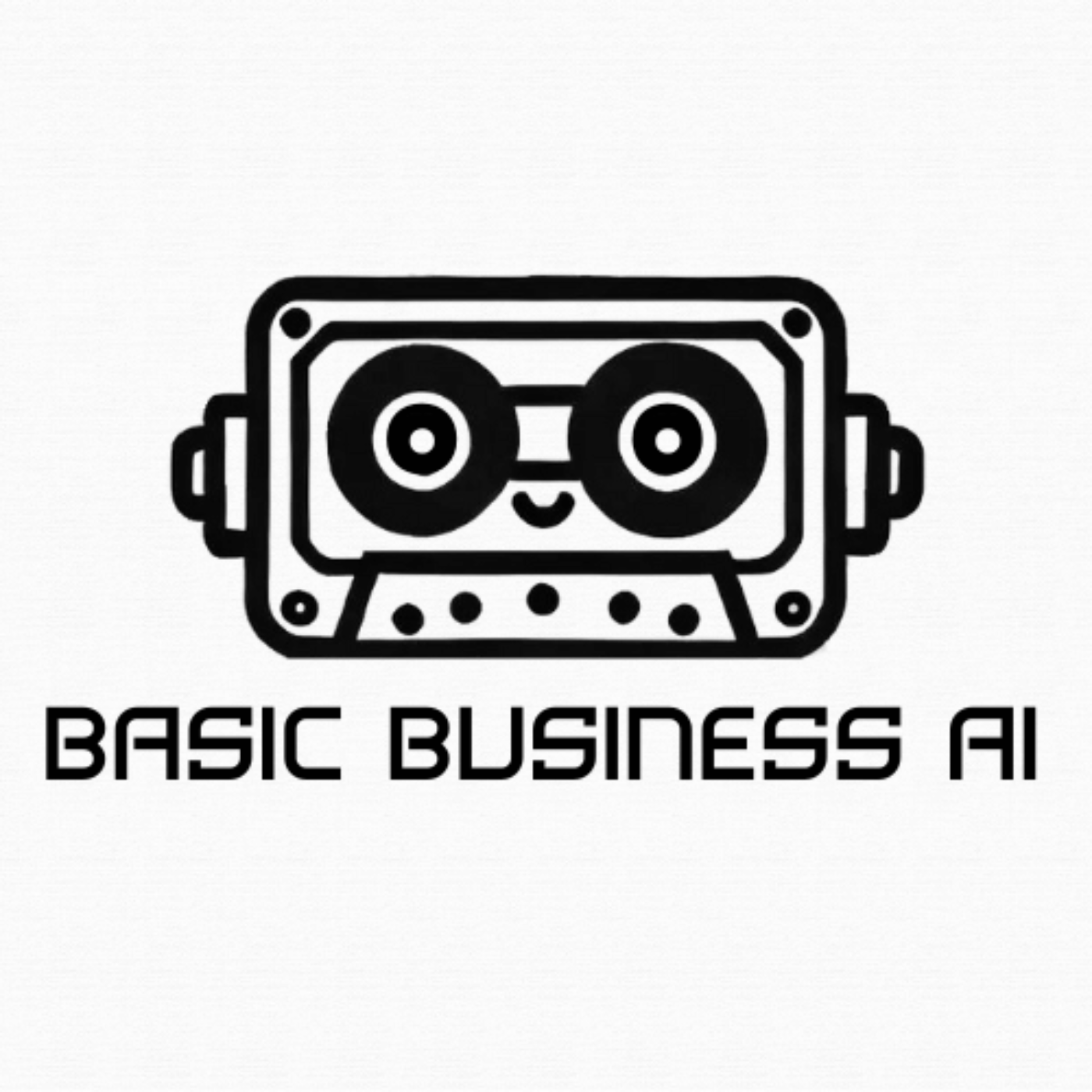[00:00:00] Speaker A: Welcome to Basic Business AI, a podcast dedicated to simple AI strategies for businesses who don't want to get an advanced tech degree or hire some marketing bro. I'm your host Ana Gonzalez and you can find me on social media at anabotprime. We bring on regular business owners like you and me to discuss practical strategies, ideas and perspectives about AI without getting too far into the weeds of the tech. BBAI is sponsored by Conversational Funnels. The easiest way to get more sales is to get more chances to sell. We used one simple conversational funnel to casually book 121 qualified sales opportunities in less than two weeks in a brand new market where we had zero presence and zero connections, all without spending on ads, doing cold outreach or posting endlessly on social media. This is the new way to close high ticket clients for 2025 and it only takes minutes to start booking calls. Download the blueprint for
[email protected] Today's guest is Jonathan Mast. Jonathan is an AI strategies coach and consultant, helping business and their teams leverage AI to save time, increase profits and deliver more value to their clients.
So Jonathan, welcome to Basic Business AI. From your perspective, how is AI reshaping the future of your industry?
[00:01:27] Speaker B: Well, thank you for inviting me. I'm really happy to be here. AI is really reshaping my industry, which is a marketing industry in so many ways because it's allowing us to do more faster.
That obviously is good for our bottom line, but it's also good for our clients because we're able to deliver more value and specifically in the marketing side of things, we're able to deliver more personalized messaging. We can do much, much better job than we've ever been able to do before of understanding not just who our broad market is, but who our niche markets are and how we can target them specifically with content that resonates with them.
[00:02:04] Speaker A: That's awesome. I love how like from straight to the point it was so what have been some practical applications that you use in your business for us?
[00:02:15] Speaker B: I think you know a lot of what we use. And, and as you mentioned, I'm an AI coach and consultant so my background's in digital marketing, but now I do coaching, teaching other is how to implement AI. I think probably the most common way we do that is identifying things that are often repeated and routine and training AI how to handle those things, adding in some automation so that we can save not only the business but particularly their employees time and money. I don't know any employee that looks at their job and says Wow. I just wish I had more to do. Everybody's got plenty to do and generally not enough time to get it done. And AI is a tremendous tool to allow not only the business to excel, but to allow those individual team members to be able to find more flexibility in their day to get more done in less time. And we tend to do that typically by just teaching some basic prompts and basically how to communicate with the models like chat, GPT and Claude and Gemini so that you can actually get great responses. Because it's a garbage in, garbage out, bad, bad information in. You get bad information out. A lot of people try it and go, that was terrible. It's because you didn't know how to ask it the right way. So we teach them how to communicate just like we would in any relationship.
[00:03:24] Speaker A: That's awesome. I can, you know, I can relate to that because even though I don't consider myself an AI expert or a prompt expert, I remember when I first started to try ChatGPT and I was like right behind me, an email and then it would just throw out an email with flowery language. And I was like, oh, I would never say this, this is garbage.
[00:03:48] Speaker B: Exactly.
[00:03:49] Speaker A: The garbage was my instruction.
I have been, I've gotten a little bit better since then, but. But yes, I can resonate a lot with that.
I would like to ask, okay, you, you teach them and you coach them on, on prompting. Do you recommend. This is a question that I've heard a lot. Do you recommend any model over another one?
[00:04:18] Speaker B: So the. From my perspective, I'm fairly agnostic on which model to use. They all will work for you. Do some work better and do we have preferences? Absolutely we do. I'm a huge fan of actually combining three models out there. Most everybody's heard of ChatGPT. That's the big, big player out there. I'm also a huge fan of a platform called Claude C L A U D E and that's about by a company called Anthropic. It's a direct competitor. And then one that not so many people have heard about is actually a AI based search engine called Perplexity and Perple combined with chatgpt and Claude allow you to create just amazing content. And the reason that works so well is that ChatGPT's knowledge cutoff date was August of 2023, so over a year ago. Claude's knowledge cutoff date is April of this year, so over six months ago. But when we use Perplexity to research topics, it's actually giving us information from a Moment ago, live relevant today's information that we can then give that knowledge over to a tool like ChatGPT or Claude to write a blog post, write social post, to write an email, to write a memo, to write a standard operating procedure, you name it, we can use that. And now we have perfectly up to date data that works well and leverages all the skills of those two platforms.
[00:05:34] Speaker A: Oh my gosh, that's amazing. So, okay, what you're saying is that you can research a topic on Perplexity and then you would go to Claude.
[00:05:46] Speaker B: Claude or ChatGPT, either one doesn't really matter. It's kind of like here in the U.S. you know, we've got three major automobile brands, we've got Ford and Chevy and Chrysler and, and there's people that love all of them and there's people that hate all of them. And ChatGPT and Claude @ the end of the day are very, very similar. Other differences? Yes, just like there are between a Ford and a Chevy, but they're very similar. Both of them are going to get us to go to the grocery store, they're all getting us to church on the weekend. It's all, they all work. And that's the same for AI models today. So are there preferences? Yes, and I have preferences in different times when I use different tools. But, but for most people, 99% of people using ChatGPT or Claude, either one of them combined with the data from Perplexity where you're literally taking that search data, the result and you're copying it in as, as training data will deliver exceptional results. The other thing we try to teach people on is you mentioned, you know, putting in write me an email and you didn't like the email. It'd be like if you and I were collaborating on a project and I said, hey, let's write a press release. And I turned around and walked away. And you're like, hey Jonathan, I got a question for you. And I'm like no, no, no, just fig out. But who do, what are we writing it for? And who's it, who, what's it about? Now I just figured out that press release that you ended up writing isn't going to probably be what I wanted because I didn't give you any information. So we teach people, when you're prompting, remember four simple steps. Tell the AI what it's supposed to act as, what type of expert, give it background information so that it knows the context of what you're asking. Ask it your question and then probably the most important part is the fourth step, and that's ask me any clarifying questions you have. In other words, tell that right to the AI model because I forget what it needs. Or candidly, I probably don't know what to tell the AI in most cases. So if I would say, write me a press release and ask me any questions you have, guess what? It'll now ask me. Who are we writing it for? Who's the intended audience? What do we want to say? What are the goals and objectives? How are we going to distribute it? All the things that it would need to know. But if I don't ask that, it's just going to make assumptions and fill it in and then we're going to get garbage.
[00:07:52] Speaker A: That's awesome. And thank you so much for that template of the four steps. Can you repeat that for me, please?
[00:07:58] Speaker B: I sure can. So, four steps, super easy. Tell AI what type of expert it's supposed to be. Step two, give it background information, whatever you think it may need to know in order to answer your question properly. That could be things like your company name, your. What the topic is, who your audience is. Step three is your question. So write me that press release. And step four, if you remember nothing else, remember this, because this will save so many prompts. Please ask me any clarifying questions you have and just end your prompt with that statement. Please ask me any clarifying questions you have. And yes, I say please. And thank you to AI because if it ever does come in control, I want it to remember I was nice. Not that I think that'll happen, but it's. It's fun. So, yeah, it's just those, those four simple steps. And if you can do that for any topic, any objective that you can dream up, you'll get wonderful responses.
[00:08:48] Speaker A: That's awesome. And yeah, that's another thing that some people say please, some people don't say please. I have mixed feelings on that because sometimes I say please because of the same reason that you just said, like, I, I need to.
[00:09:00] Speaker B: I don't think that. I don't think that'll happen, but it's fun nonetheless.
[00:09:03] Speaker A: It's fun. I just need them to remember that I'm nice. Or sometimes I don't say please because if they do come, like, yes, Skynet, I want them to remember who's boss.
[00:09:13] Speaker B: Exactly. Exactly. Yes, I agree with you.
[00:09:18] Speaker A: So that's awesome. Thank you so much for that. So, Jonathan, tell us about who you serve and how people can reach out to you.
[00:09:24] Speaker B: So I work with primarily business owners and entrepreneurs who are looking to leverage AI in their businesses to save time, to improve profits, and to deliver more value to their clients. And if people are interested in that, they just remember my name Jonathan Mast and go to jonathan mast.com linktree that's L I N K T R E E and they'll get all my contact information. You can reach out. I'd be happy to have a conversation.
[00:09:51] Speaker A: Fantastic. So we're going to wrap from here. Thanks to our guest, Jonathan Mast for joining us for a practical conversation about AI and its potential for business. You can learn more about what he does by going to Jonathan Mast.com linktree L I N K T R E E if you run a business of any size and you have some ideas or strategies around the topic of AI, we'd love to have you on for a future episode as well. We interview business owners of all levels of experience and exposure to AI so we can represent all voices, especially the 90% of us who are curious about AI but not trying to be tech geniuses. Apply for our future episode by going to basicbusinessai.com and one more time, if you want to stuff your calendar with qualified and motivated ideal clients who want what you have, download the Conversational Funnels blueprint for free at Conversational Funnels.com see you next time at Basic Business AI. Oh by the way, if you like this amazing episode, tell your friends. See you later. See you later.



